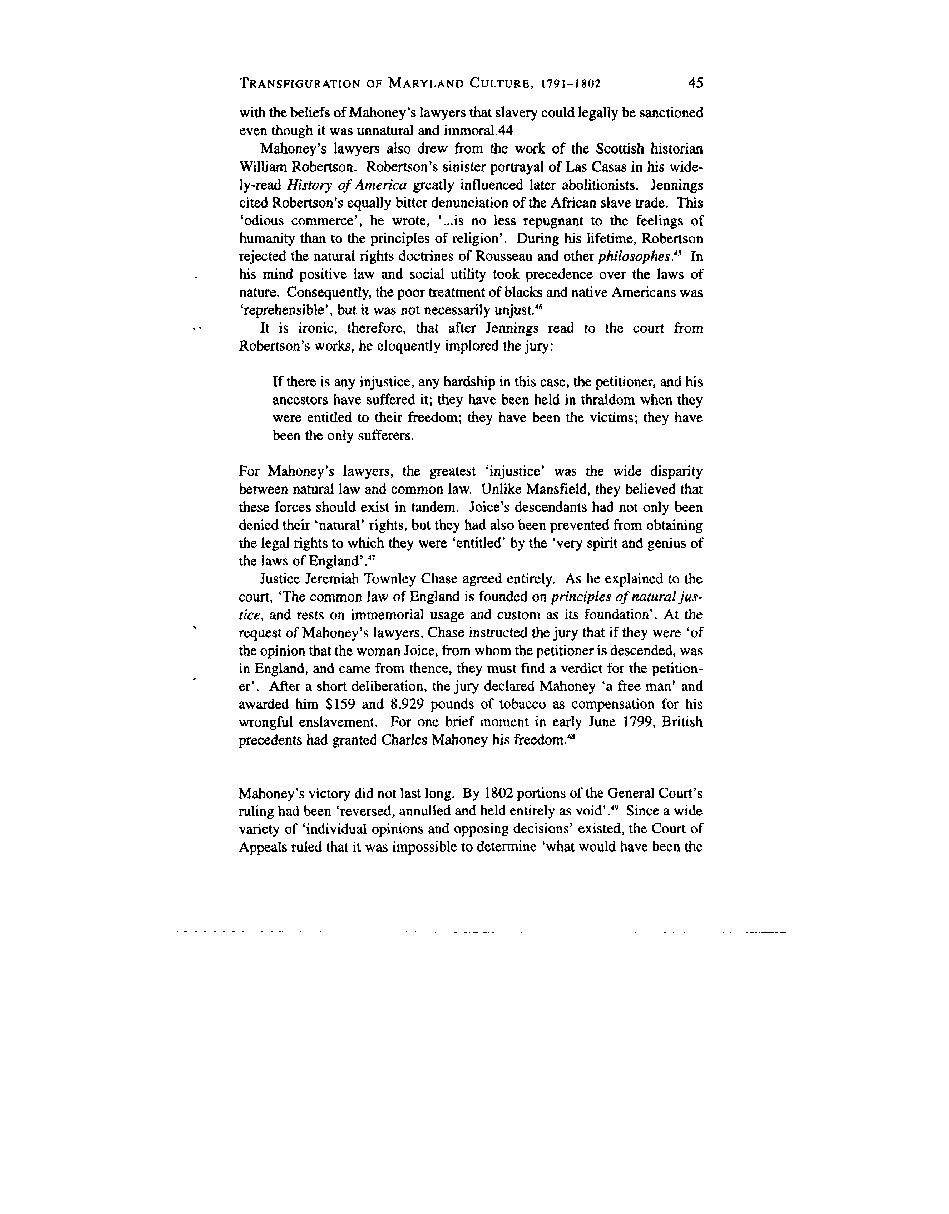|
TRANSFIGURATION OF MARYLAND CULTURE, 1791-1802 45
with the beliefs of Mahoney's lawyers that slavery could legally be sanctioned
even though it was unnatural and immoral.44
Mahoney's lawyers also drew from the work of the Scottish historian
William Robertson. Robertson's sinister portrayal of Las Casas in his wide-
ly-read History of America greatly influenced later abolitionists. Jennings
cited Robertson's equally bitter denunciation of the African slave trade. This
'odious commerce', he wrote, '...is no less repugnant to the feelings of
humanity than to the principles of religion'. During his lifetime, Robertson
rejected the natural rights doctrines of Rousseau and other philosophes." In
his mind positive law and social utility took precedence over the laws of
nature. Consequently, the poor treatment of blacks and native Americans was
'reprehensible', but it was not necessarily unjust.46
It is ironic, therefore, that after Jennings read to the court from
Robertson's works, he eloquently implored the jury:
If there is any injustice, any hardship in this case, the petitioner, and his
ancestors have suffered it; they have been held in thraldom when they
were entitled to their freedom; they have been the victims; they have
been the only sufferers.
For Mahoney's lawyers, the greatest 'injustice' was the wide disparity
between natural law and common law. Unlike Mansfield, they believed that
these forces should exist in tandem. Joice's descendants had not only been
denied their 'natural' rights, but they had also been prevented from obtaining
the legal rights to which they were 'entitled' by the 'very spirit and genius of
the laws of England'."7
Justice Jeremiah Townley Chase agreed entirely. As he explained to the
court, "The common law of England is founded on principles of natural jus-
tice, and rests on immemorial usage and custom as its foundation'. At the
request of Mahoney's lawyers, Chase instructed the jury that if they were 'of
the opinion that the woman Joice, from whom the petitioner is descended, was
in England, and came from thence, they must find a verdict for the petition-
er'. After a short deliberation, the jury declared Mahoney 'a free man' and
awarded him $159 and 8,929 pounds of tobacco as compensation for his
wrongful enslavement. For one brief moment in early June 1799, British
precedents had granted Charles Mahoney his freedom.48
Mahoney's victory did not last long. By 1802 portions of the General Court's
ruling had been 'reversed, annulled and held entirely as void'.*" Since a wide
variety of 'individual opinions and opposing decisions' existed, the Court of
Appeals ruled that it was impossible to determine 'what would have been the
�
|

